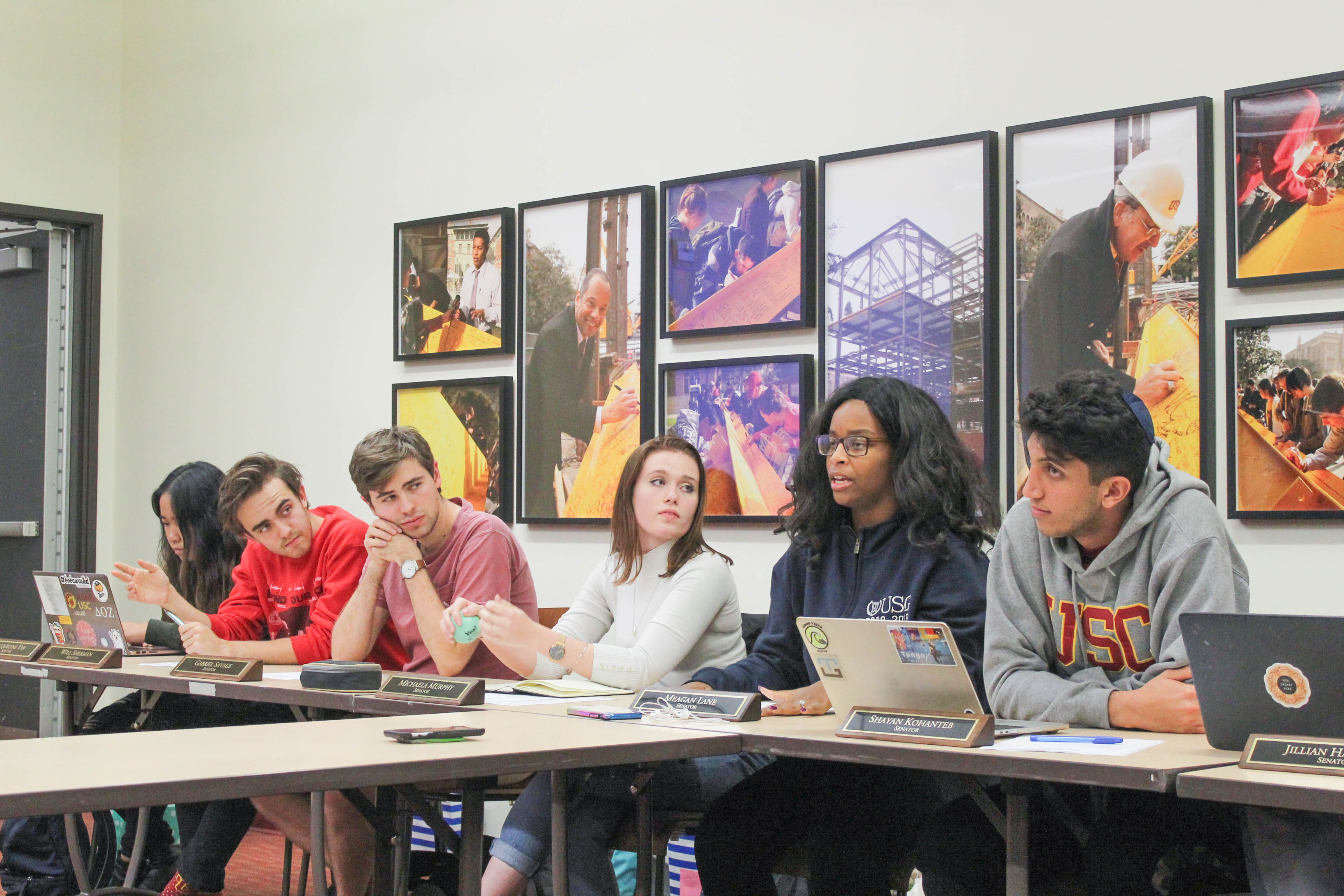USG passes election code for next semester, diversity fund

Sen. Shayan Kohanteb’s (far right) proposal to allow senators to endorse specific candidates in the next USG election was voted down at Tuesday’s meeting. (Krystal Gallegos | Daily Trojan)
The Undergraduate Student Government voted Tuesday to approve next semester’s elections code. Senators will be required to remain neutral on candidates running for open positions, and an amendment proposed prohibiting all USG members from endorsing candidates failed to pass.
Sen. Shayan Kohanteb first proposed an amendment that would have allowed senators to endorse candidates in the next USG election. Kohanteb argued that senators lend a valuable perspective to USG elections since they know the inner workings of the Senate better than anyone else.
Sen. Michaela Murphy was the first to raise issue with Kohanteb’s amendment, arguing that allowing senators to endorse candidates would contribute to nepotism within the Senate. She said that favoritism has been a problem in the past.
“USG reached a point not many years ago where internal nepotism … had seemed to spiral so out of control that a [School of Cinematic Arts] student literally made a documentary about internal nepotism in the organization and how it impacts USG elections,” Murphy said.
Several people from the Senate and gallery expressed concern that senate aides have an unfair advantage if senators are permitted to endorse candidates.
Last year was the first year USG broke precedent, allowing senators to endorse candidates in an informal agreement among sitting senators. Sophomore Truman Fritz, USG’s associate director for marketing, said that this may have produced a fairer election than those in past years.
“There were six senate aids last year who were elected — there were also three who weren’t,” Fritz said. “I would like to argue that that was because of their platforms and not because they were senate aides.”
He also said that experience within USG is not a necessary prerequisite for holding office as a senator, as long as the candidate can properly represent the student body.
Sen. Max Geschwind claimed that senate endorsements could actually increase voter turnout.
“I think we should have faith that students will vote intelligently,” Geschwind said. “We shouldn’t think that just because a certain senator adds their name to a particular candidate … [students] won’t blindly vote.”
After confirming the elections code, the Senate unanimously voted to confirm an amendment to USG’s diversity fund, which would allow for the creation of an oversight board democratically elected by USG’s cultural assemblies. There will now be a process for individuals or organizations to apply for access to the diversity fund through the new oversight board.
Murphy and former USG director of community affairs Mai Mizuno authored the amendment and Senators Manda Bwevervu and Meagan Lane co-sponsored it.
Before the amendment was passed, the executive board of USG decided who would receive access to the diversity fund and there was no formal application process, according to Murphy.
“If we use the belief system that … where we put our money is a reflection of our values, then that is a very strong statement to make to the USC administration to say that what we value is diversity-based initiatives,” Murphy said at a USG meeting about the diversity fund in October.
